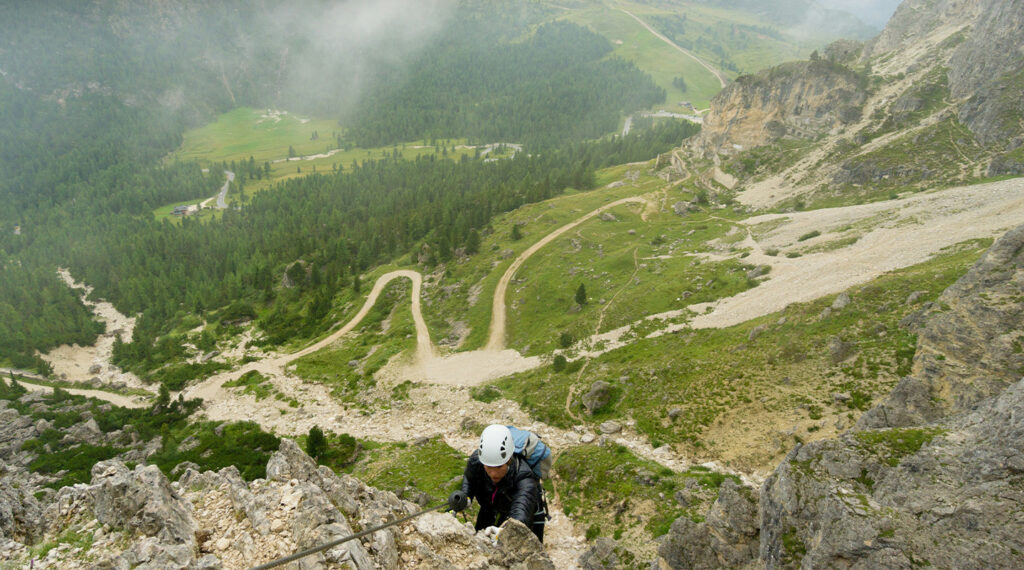Philanthropy must step up: Not with caution, but with courage

The world is changing at an unprecedented pace, confronting us with a complex set of deeply interrelated challenges: climate instability, economic inequality, democratic erosion and social fragmentation. For philanthropy, this means business as usual is no longer an option. To truly drive change, the sector must embrace futures thinking, a way of anticipating and shaping what comes next rather than merely reacting to the present.
A recent publication, “Bridging Today and Tomorrow: Futures Philanthropy Case Studies”, explores how philanthropic organisations can integrate strategic foresight into their work, offering both practical tools and real-world examples of how long-term thinking is being applied. The goal? To equip funders with a new mindset – one that moves beyond short-term interventions toward systemic transformation.
Like many other regions in Europe and worldwide, Sicily – home to the MeSSInA Foundation – is facing extreme challenges. More than 70% of our territory is at risk of desertification due to climate change; and it remains one of the EU’s “less developed regions”, grappling with some of the highest rates of unemployment, as well as people at risk of poverty and social exclusion, in Europe. This reality demands alternative solutions to mainstream economic models that have, in many ways, contributed to these very challenges.
The MeSSInA Foundation, created in 2010, aims to achieve exactly that, providing viable sustainable alternatives. Our foundation goes beyond the provision of “philanthropic” finance and builds interconnected responses that bridge welfare, culture, production, finance, research and technology, engaging a wide range of stakeholders. Today, it leads an EU-recognised Cluster of Social and Environmental Innovation (CSEI), fostering sustainable development across Sicily.
We see ourselves not just as funders, but as enablers of systemic transformation, helping communities unlock their potential and design new, sustainable future “visions” and bring them to life. Through our approach, we have challenged both the economic status quo in Sicily and the traditional philanthropic approach in our context.
The case studies in the aforementioned publication challenge that status quo as well. They highlight the following approaches that philanthropic organisations can take to go beyond immediate relief, and invest instead in futures where those historically excluded from decision-making have a central role in shaping policies, economies and social norms:
Adopt a futures mindset
Philanthropic organisations must embed foresight into their strategy. This means continuously scanning for emerging trends, questioning assumptions and integrating future scenarios into decision-making.
Shift power and capital
Traditional funding models often reinforce existing inequalities. Philanthropy can play a role in redistributing decision-making power to underrepresented communities. More funders must follow suit, ensuring those closest to societal challenges have the resources and authority to drive change.
Invest in resilience
Philanthropy must commit to long-term sustainability rather than donor dependency by investing in building resilient organisations and movements, not just funding short-term projects. This means supporting core costs, providing flexible funding and taking calculated risks on innovative ideas.
Reimagine governance
Philanthropy needs more inclusive governance structures that bring in members of the communities it supports. If philanthropy is serious about intergenerational fairness, for instance, it must actively include young people in decision-making rather than treating them as passive beneficiaries.
Commit to learning and adaptation
Systems transformation is not a one-time effort: It’s an ongoing process of iteration and learning. Philanthropy must cultivate a culture where failures are seen as opportunities for growth, and where adaptive strategies replace rigid funding cycles.
The lessons and approaches outlined in the publication are essential to confronting the existential challenges that threaten our communities today. As such, they can inspire foundations that are seeking new ways to achieve change. In Sicily, we faced a similar moment of reckoning in the 1990s when the Mafia controlled much of the region with extreme violence. At the darkest moment, when the Mafia aimed to show its dominance over the state by assassinating judges Giovanni Falcone and Paolo Borsellino, a powerful civic, non-violent movement erupted. This movement gave rise to political, social and cultural initiatives that promoted a culture of legality and an alternative future. It marked a turning point, weakening the Mafia’s control and planting the seeds of social economy models that continue to thrive today. Those seeds, after years of incubation and growth, ultimately led to the creation of our foundation.
Today, the “dark moment” is no longer just a regional issue, it is global. This does not discourage us: Our foundation itself was born from crisis, proving that critical moments can spark new solutions. I believe that transformation is possible on a global scale and that philanthropy has a key role in this, provided it challenges the status quo and aims at systemic transformation.
Public resources, and political will, for social and environmental innovation are shrinking, so philanthropy must step up – not with caution, but with courage: It’s time to take risks, explore new approaches and challenge outdated ways of thinking. Failing to act boldly would mean failing to be part of the solution.
Authors

